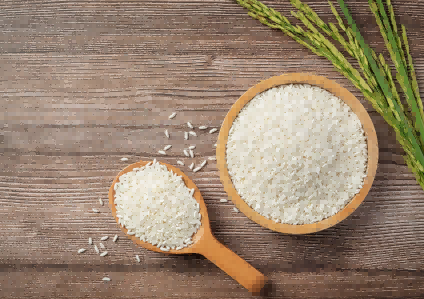 Trade Trends News
Trade Trends News
 26-07-2023
26-07-2023

Rice prices are expected to soar after a ban on large exports from India, the biggest exporter, will add to pressure on global grain markets already reeling from bad weather and a worsening conflict in Ukraine.
"In the short term, prices will definitely go up, it's just a question of how high," said Chookiat Ophaswongse, honorary chairman of the Thai Rice Exporters Association, one of the world's largest grain shippers. "And it will be a peak, not a gradual increase."
India's move to restrict exports of certain types of rice could exacerbate food price inflation, International Monetary Fund chief economist Pierre-Olivier Gulinchas said Tuesday.
India's restrictions would have an effect similar to the suspension of Ukraine's Black Sea grain export deal, helping to push up prices in other countries, Gulinchas told a news conference. Global food prices could rise 10-15 percent this year, he added.
Rice is vital to the diets of billions of people in Asia and Africa, and a spike in prices would add to inflationary pressures and increase import bills for buyers. India's restrictions, which apply to shipments of non-basmati white rice, are aimed at controlling domestic prices. The move comes amid growing concerns about the impact of El Niño weather patterns on agricultural supplies, soaring temperatures in Europe and Russian attacks on export facilities in Ukraine.
"India's export ban needs to be seen in the context of this ominous environment," said Peter Timmer, a Harvard professor emeritus who has studied food security for decades." There are now more reasons to worry that Asian rice prices could soon spiral out of control.
Vietnam, another major rice shipper, has offered $600 a ton for supplies of 5 percent white rice, and Thailand may follow suit, Chookiat said in an interview. A rise to that level would take Thai prices to the highest level since 2012, compared with the current price of $534 a ton, near a two-year high.
India's latest restrictions, coupled with previous restrictions on broken rice, affected 30% to 40% of the country's total shipments, though Nomura Holdings warned that restrictions could be extended to other categories if rainfall is uneven and domestic inflation rises. As things stand, the rules could affect flows to China, Malaysia, the Philippines, Indonesia and many African countries.
Nonetheless, on the basis that India allows other countries to export to meet their food security needs, outbound shipments can still be made as per the requirements of their governments. In addition, exports of non-Indian aromatic rice and Indian aromatic rice are still allowed, which may soften the blow.
The extent of the impact of the Indian ban on imports from Asia and Africa will depend on the duration of the ban and the extent to which those countries can arrange purchases through diplomatic channels, said Shirley Mustafa, an economist at the Food and Agriculture Organization of the United Nations.
Mustafa said importers could also diversify their sourcing sources, provided the export restrictions don't lead to higher prices in those places, which could dampen demand, especially among price-sensitive buyers." That's actually what's worrisome," she said.
Category
Leave Message for Demo Request or Questions


 T-info
T-info T-discovery
T-discovery

 My
Tendata
My
Tendata Market Analysis
Market Analysis Customer
Development
Customer
Development Competitor
Monitoring
Competitor
Monitoring Customer Relationship
Customer Relationship





































































































































